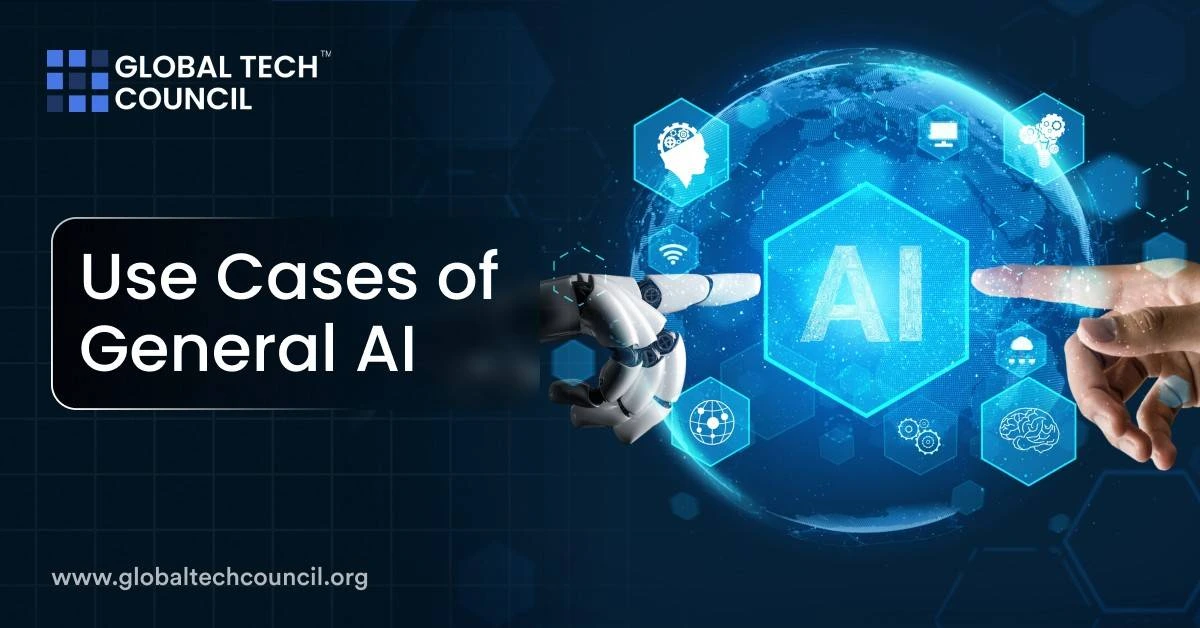
Artificial General Intelligence (AGI) is a huge change compared to the current AI technologies we’re familiar with today. Unlike narrow AI, which focuses on particular jobs like image recognition or generating text, AGI aims to manage a variety of tasks, much like humans. It has the ability to learn, understand, and adapt to various areas without needing separate programming for each task.
How AGI Stands Out
What makes AGI stand out is its ability to manage multiple tasks using intelligence similar to human thinking. Current AI systems generally require large amounts of data and training for each individual task. In contrast, AGI can use its knowledge across different tasks. For example, an AGI that learns to play chess could potentially use similar strategies to solve a tough math problem or find its way in a new place. This flexibility makes AGI much more adaptable compared to current AI systems, which are rigid and tied to specific tasks.
Major AGI Applications
Healthcare
AGI could bring vast improvements to healthcare. It could help medical professionals by reviewing large volumes of patient information. An AGI system might review a patient’s medical history, genetics, and imaging data to help doctors diagnose more accurately. It could also predict how patients might respond to treatments, offering real-time, personalized care suggestions based on previous cases. When it comes to developing new medications, AGI could speed up the process. It could simulate biological reactions and analyze huge datasets to find potential new drugs. This would help researchers identify promising candidates faster and predict their effectiveness.
Financial Industry
In finance, AGI has the potential to change how businesses assess risks, make investments, and detect fraud. These systems can study complex market data and find patterns that humans or regular AI systems may miss. For instance, AGI could create advanced trading strategies that adjust to changing market conditions and make decisions in real time. AGI can also improve security by identifying fraudulent activities that are hard to spot using traditional systems. By constantly learning from new data, AGI would adjust its methods to counter new fraud techniques.
Manufacturing
In manufacturing, AGI could optimize processes by gathering and analyzing data from machinery and production lines. These systems could predict when machines are about to fail, allowing maintenance before problems arise. This would not only reduce downtime but also improve product quality and safety. For example, in car factories, AGI might recommend adjusting machinery or finding ways to save resources. This would allow businesses to save both time and resources while reducing waste.
Autonomous Systems
Autonomous systems, such as self-driving cars and drones, could benefit significantly from AGI. Current self-driving cars depend on pre-loaded maps and sensors to move around. With AGI, these vehicles could adapt to their environment and make quick decisions without relying on predefined instructions. For example, in challenging situations such as driving through a busy city or dealing with sudden weather changes, AGI-powered systems would consider traffic, road conditions, and hazards, making decisions like a human driver would.
Customer Interaction
AGI’s ability to understand language and emotions could lead to better customer service. It would be able to interact naturally with people, offering answers that match individual needs. AGI systems could also evaluate a customer’s tone, context, and past interactions to provide more tailored support.Imagine a customer service AGI that not only solves current issues but also predicts potential future problems based on the customer’s behavior patterns. This would take customer service to a level beyond what traditional AI chatbots can provide.
Challenges in Developing AGI
Knowledge Generalization
One key difficulty is building systems that can apply knowledge across different tasks, as most AI struggles to transfer what it has learned from one area to another. AGI would need to be much better at reasoning and solving problems, as well as understanding social dynamics, to work effectively alongside humans.
Ethical Concerns
There are also ethical concerns. Ensuring AGI is created in a responsible way, with safeguards to prevent misuse, will be critical for its safe introduction into society. Developers are also working on reducing bias in AGI systems to ensure they function fairly and openly.
Conclusion
AGI has the potential to change many industries. Whether it’s in healthcare, finance, manufacturing, or autonomous systems, AGI could improve efficiency, accuracy, and problem-solving. However, many technical and ethical challenges remain before AGI can be fully realized. As research continues, AGI may eventually take on more complex tasks, offering new solutions for both everyday activities and larger global issues.

